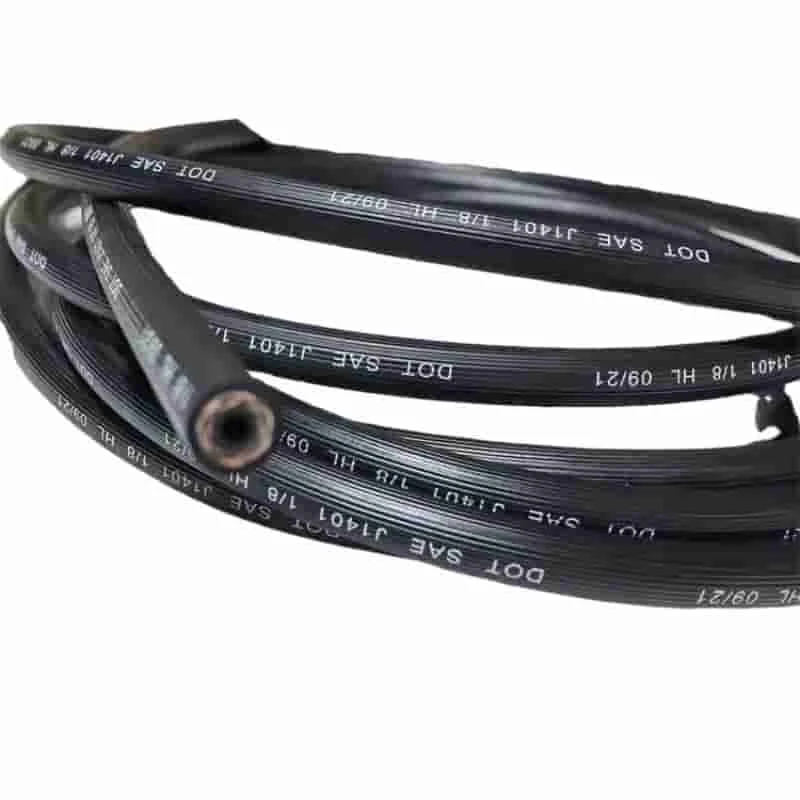flexible heating oil line
Nov . 05, 2024 01:20 Back to list
flexible heating oil line
Understanding Flexible Heating Oil Lines Benefits and Applications
In today's rapidly advancing world, heating systems have become more sophisticated, efficient, and user-friendly. One of the crucial components of many heating systems is the heating oil line; specifically, the flexible heating oil line. This article explores the significance of flexible heating oil lines, their benefits, applications, and considerations for installation and maintenance.
What Are Flexible Heating Oil Lines?
Flexible heating oil lines are specially designed hoses that transport heating oil from the storage tank to the furnace or boiler. Unlike traditional rigid pipes, these flexible lines provide more versatility regarding installation and layout. Made of durable materials resistant to heat, pressure, and corrosion, flexible heating oil lines have become increasingly popular in residential and commercial heating systems.
Key Benefits of Flexible Heating Oil Lines
1. Ease of Installation One of the standout advantages of flexible heating oil lines is their ease of installation. The ability to bend and maneuver around obstacles means that complex plumbing and piping setups can often be avoided. Whether you're replacing old lines or installing a new system, flexible lines can save you time and labor costs.
2. Space Efficiency Many heating systems are installed in tight spaces, such as basements, crawl spaces, or utility rooms. Flexible heating oil lines can be routed through these cramped areas without the need for extensive alterations. This space efficiency is especially valuable in urban environments or smaller homes, where maximizing usable space is a priority.
3. Reduced Risk of Leaks Flexible lines are designed to withstand constant movement and vibrations that can lead to wear and tear in rigid pipes. Additionally, many flexible heating oil lines come with built-in leak-proof features, significantly reducing the risk of leaks. This reliability can save homeowners considerable money and hassle over time.
4. Durability and Resistance Flexible heating oil lines are often made from materials like rubber or thermoplastic that can withstand high temperatures and pressures typical in heating systems. These materials also resist common fuel contaminants, ensuring a longer lifespan and better performance of the heating system overall.
5. Cost-Effectiveness While the initial investment in flexible heating oil lines may sometimes be higher, their longevity, minimal maintenance needs, and the reduced cost of installation make them a cost-effective choice for many homeowners and businesses.
Applications of Flexible Heating Oil Lines
Flexible heating oil lines find applications in a variety of settings, including
flexible heating oil line

- Residential Heating Systems Homeowners often use flexible lines for oil-fired furnaces and boilers. Their ease of installation and maintenance makes them ideal for home heating solutions.
- Commercial Heating Applications In commercial buildings, where heating demands can vary significantly, flexible lines provide the adaptability needed to meet different requirements.
- Oil Tank and Generator Connections Flexible heating oil lines are commonly used to connect storage tanks to delivery systems, such as oil generators, ensuring a reliable supply of fuel.
Installation and Maintenance Considerations
When it comes to installing and maintaining flexible heating oil lines, there are several factors to consider
1. Proper Sizing Flexible heating oil lines come in various sizes, and choosing the right diameter is essential for optimal performance. Oversized or undersized lines can lead to inefficiencies or increased wear.
2. Regular Inspections Even though flexible lines are durable, regular inspection is key to identifying potential wear or damage. Homeowners should check for signs of leaks or cracks, especially before the heating season begins.
3. Professional Installation While DIY installation may seem tempting, hiring a qualified professional ensures that the lines are correctly fitted and compliant with local building codes and safety regulations.
4. Temperature and Pressure Ratings It's crucial to select flexible heating oil lines that meet the temperature and pressure specifications of your heating system. Using inappropriate materials can lead to safety hazards and system failures.
Conclusion
Flexible heating oil lines represent a significant advancement in the heating industry, offering numerous benefits such as ease of installation, space efficiency, and reduced risk of leaks. As residential and commercial heating needs evolve, these versatile lines continue to play an essential role in ensuring reliable and efficient heating solutions. By understanding their applications and best practices for installation and maintenance, users can leverage the advantages of flexible heating oil lines to foster a more effective heating environment.
